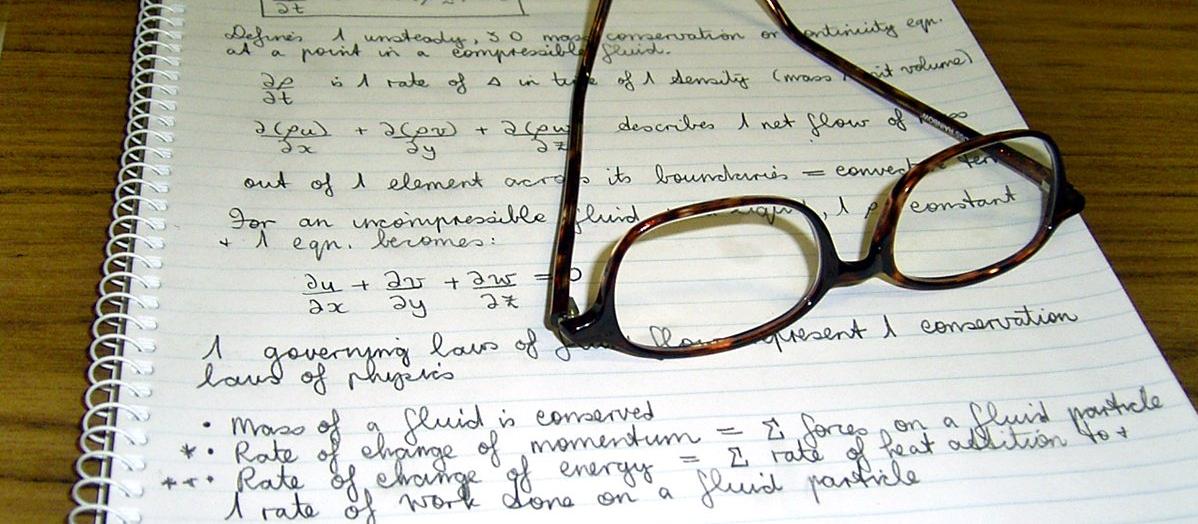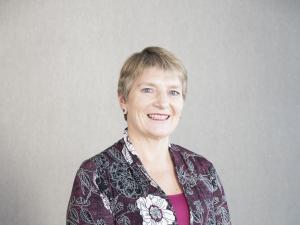Respiratory physician Lutz Beckert considers chronic obstructive pulmonary disease management, including the prevention of COPD, the importance of smoking cessation and pulmonary rehabilitation, and the lifesaving potential of addressing treatable traits. He also discusses the logic of inhaler therapy, moving from single therapy to dual and triple therapy when indicated, as well as other aspects of management
GP registrars frustrated by lack of consultation over exam date change
GP registrars frustrated by lack of consultation over exam date change

We're republishing this article in our Undoctored free access space so it can be read and shared more widely. Please think about supporting us and our journalism – subscribe here
“The decision blindsided a lot of people, there was a lot of frustration because we’d never been asked, we just got told it was happening”
First-year GP registrars have been left feeling “blindsided” after the date of their clinical exam was moved to early 2022 without consultation.
At 4pm last Friday, the RNZCGP announced COVID-19 had forced a delay in the clinical exam for first years on the General Practice Education Programme (GPEP), and would move from 29 November to 28 February 2022.
The written exam will still be held on 13 December 2021.
The college said in a media release that deferring the exam will reduce anxiety and uncertainty for registrars, providing them with more opportunities to complete mock exam scenarios.
However, the decision appears to have done the opposite, says treasurer of the RNZCGP Registrar’s Chapter Ralston D’Souza.
Shortly after the college’s announcement, messages from concerned registrars started coming through.
“The decision blindsided a lot of people, there was a lot of frustration because we’d never been asked, we just got told it was happening,” Dr D’Souza says.
“The uncertainty created by the ongoing COVID-19 outbreak also means no one knows what the situation will be like in three months – so will the exam end up being postponed again?”
Dr D’Souza, who is training towards a dual fellowship in general practice and rural hospital medicine, says following the announcement the Registrars Chapter sent out a survey to all GPEP1 registrars on 4 October.
By the next day, it had received 121 responses, out of about 200 registrars across the country.
While acknowledging the disruption caused by the ongoing COVID-19 outbreak, respondents to the survey were unhappy with the poor communication by the college, and its “lack of openness”.
By 28 February, registrars will be one month into their second year of training, most of them employed by individual general practices, rather than by the RNZCGP.
While the new date provides them with more time to prepare, survey respondents write of the mental burden and stress caused by the delay, the new date clashing with surgery, pregnancy due dates, IVF treatment, weddings and honeymoons, as well as the possibility of not being able to get paid leave to prepare for, and sit the exam, with no access to teaching sessions.
Many registrars have already booked their 10 days of study leave in the lead-up to the November exam and will now have to negotiate similar time off with their new employers next year, says Dr D’Souza.
He says a commitment from practices to provide these registrars with the necessary leave and time to prepare in order to sit the exam would go a long way to making the registrars feel less anxious about the new date.
RNZCGP chief executive Lynne Hayman tells New Zealand Doctor Rata Aotearoa the decision to defer the clinical exam was made on a sound basis after the college received considerable feedback and considered all relevant factors.
“The decision to defer is the right one to provide a clinical exam that is fairly and transparently delivered across the board.”
Feedback from the weekly seminar meetings held for GPEP1 registrars across the country reported increased anxiety levels, with registrars not feeling ready and feeling that they had not had enough clinical experience, says Ms Hayman.
Last year’s lockdown ended early enough for the college and registrars to be able to make up for lost time, but this year they find themselves in a situation with “significant uncertainty”.
“We’re two months out from the exam and still have further extension to Alert Level 3, so it’s better to make a decision now, rather than later.”
The college also has to provide fair examination opportunities for everyone, including mock exam scenarios which haven’t been able to run in Auckland due to the lockdown.
Ms Hayman says it’s important to reassure the GPEP1s and remind them that the postponement gives them an extra three months of clinical experience to hone their skills.
“We need to be appreciative of the fact that not making the decision would’ve had a bigger impact.
“So I know it might be hard for some to swallow, which we apologise for, but by far the majority have not expressed any concerns.”






![Barbara Fountain, editor of New Zealand Doctor Rata Aotearoa, and Paul Hutchison, GP and senior medical clinician at Tāmaki Health [Image: Simon Maude]](/sites/default/files/styles/thumbnail_cropped_100/public/2025-03/Barbara%20Fountain%2C%20editor%20of%20New%20Zealand%20Doctor%20Rata%20Aotearoa%2C%20and%20Paul%20Hutchison%2C%20GP%20and%20senior%20medical%20clinician%20at%20T%C4%81maki%20Health%20CR%20Simon%20Maude.jpg?itok=-HbQ1EYA)
![Lori Peters, NP and advanced health improvement practitioner at Mahitahi Hauora, and Jasper Nacilla, NP at The Terrace Medical Centre in Wellington [Image: Simon Maude]](/sites/default/files/styles/thumbnail_cropped_100/public/2025-03/2.%20Lori%20Peters%2C%20NP%20and%20advanced%20HIP%20at%20Mahitahi%20Hauora%2C%20and%20Jasper%20Nacilla%2C%20NP%20at%20The%20Terrace%20Medical%20Centre%20in%20Wellington%20CR%20Simon%20Maude.jpg?itok=sUfbsSF1)
![Ministry of Social Development health and disability coordinator Liz Williams, regional health advisors Mary Mojel and Larah Takarangi, and health and disability coordinators Rebecca Staunton and Myint Than Htut [Image: Simon Maude]](/sites/default/files/styles/thumbnail_cropped_100/public/2025-03/3.%20Ministry%20of%20Social%20Development%27s%20Liz%20Williams%2C%20Mary%20Mojel%2C%20Larah%20Takarangi%2C%20Rebecca%20Staunton%20and%20Myint%20Than%20Htut%20CR%20Simon%20Maude.jpg?itok=9ceOujzC)
![Locum GP Helen Fisher, with Te Kuiti Medical Centre NP Bridget Woodney [Image: Simon Maude]](/sites/default/files/styles/thumbnail_cropped_100/public/2025-03/4.%20Locum%20GP%20Helen%20Fisher%2C%20with%20Te%20Kuiti%20Medical%20Centre%20NP%20Bridget%20Woodney%20CR%20Simon%20Maude.jpg?itok=TJeODetm)
![Ruby Faulkner, GPEP2, with David Small, GPEP3 from The Doctors Greenmeadows in Napier [Image: Simon Maude]](/sites/default/files/styles/thumbnail_cropped_100/public/2025-03/5.%20Ruby%20Faulkner%2C%20GPEP2%2C%20with%20David%20Small%2C%20GPEP3%20from%20The%20Doctors%20Greenmeadows%20in%20Napier%20CR%20Simon%20Maude.jpg?itok=B0u4wsIs)
![Rochelle Langton and Libby Thomas, marketing advisors at the Medical Protection Society [Image: Simon Maude]](/sites/default/files/styles/thumbnail_cropped_100/public/2025-03/6.%20Rochelle%20Langton%20and%20Libby%20Thomas%2C%20marketing%20advisors%20at%20the%20Medical%20Protection%20Society%20CR%20Simon%20Maude.jpg?itok=r52_Cf74)
![Specialist GP Lucy Gibberd, medical advisor at MPS, and Zara Bolam, urgent-care specialist at The Nest Health Centre in Inglewood [Image: Simon Maude]](/sites/default/files/styles/thumbnail_cropped_100/public/2025-03/7.%20Specialist%20GP%20Lucy%20Gibberd%2C%20medical%20advisor%20at%20MPS%2C%20and%20Zara%20Bolam%2C%20urgent-care%20specialist%20at%20The%20Nest%20Health%20Centre%20in%20Inglewood%20CR%20Simon%20Maude.jpg?itok=z8eVoBU3)
![Olivia Blackmore and Trudee Sharp, NPs at Gore Health Centre, and Gaylene Hastie, NP at Queenstown Medical Centre [Image: Simon Maude]](/sites/default/files/styles/thumbnail_cropped_100/public/2025-03/8.%20Olivia%20Blackmore%20and%20Trudee%20Sharp%2C%20NPs%20at%20Gore%20Health%20Centre%2C%20and%20Gaylene%20Hastie%2C%20NP%20at%20Queenstown%20Medical%20Centre%20CR%20Simon%20Maude.jpg?itok=Z6u9d0XH)
![Mary Toloa, specialist GP at Porirua and Union Community Health Service in Wellington, Mara Coler, clinical pharmacist at Tū Ora Compass Health, and Bhavna Mistry, specialist GP at Porirua and Union Community Health Service [Image: Simon Maude]](/sites/default/files/styles/thumbnail_cropped_100/public/2025-03/9.%20Mary%20Toloa%2C%20Porirua%20and%20Union%20Community%20Health%20Service%20in%20Wellington%2C%20Mara%20Coler%2C%20T%C5%AB%20Ora%20Compass%20Health%2C%20and%20Bhavna%20Mistry%2C%20PUCHS%20CR%20Simon%20Maude.jpg?itok=kpChr0cc)